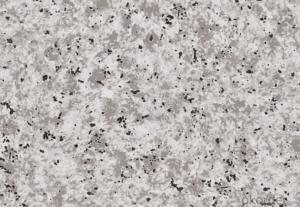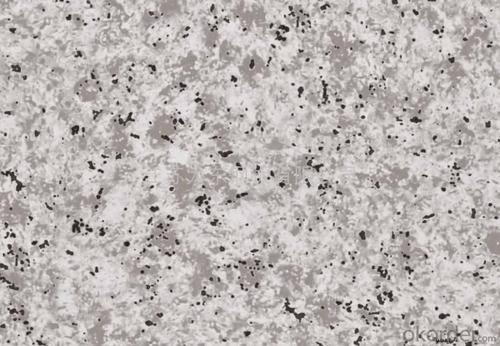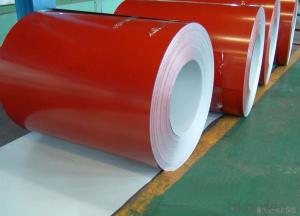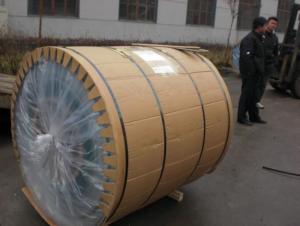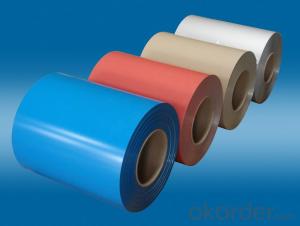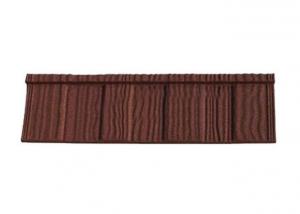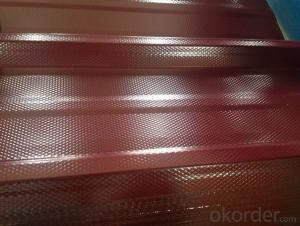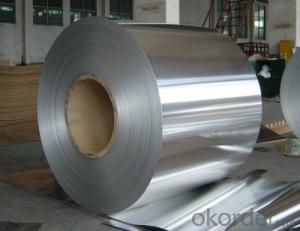Stone Coated Aluminum Roof Coil
- Loading Port:
- China Main Port
- Payment Terms:
- TT OR LC
- Min Order Qty:
- -
- Supply Capability:
- -
OKorder Service Pledge
OKorder Financial Service
You Might Also Like
Product Description:
1 Specifications of PE Coated Aluminum Coil/Sheet
Alloy | AA1050,AA1060, AA1070, AA1100, AA3003, AA3004, AA3005, AA3105, AA5005, AA5052, AA5754, AA5083, AA8011 |
Temper: | H12, H14, H16, H18, H22, H24, H26, H32,HO, F |
Thickness: | 0.10-4.0mm |
Width: | 10mm- 2000mm |
Coating | PE(Polyester) |
Painting Thickness | Standard 16-25 microns, max 40 microns |
Color | Acording to Ral colors or customer’s samples |
Standard: | GB/T17748-1999, ASTM, ISO, EU standard |
Special Specification is available on customer’s requirement | |
Paint Material:PPGI,BECKER, NIPPON.
PE(polyester) Coating
PVDF
2 Usage/Applications of PE Coated Aluminum Coil/Sheet
Our company's PE Coated Aluminum Coil/Sheet have been widely used in the fields of construction and decoration(garage doors, ceiling etc.), electronic appliances, lighting decoration, air-condition air pipe, sanwich panels and drainage, etc.
- Q: This question asks for methods to assess the quality of aluminum coil, which is important in industries where aluminum products are used.
- <p>To check the quality of aluminum coil, you should inspect its surface for any defects like scratches, dents, or discoloration. Measure its thickness and width to ensure they meet the specified standards. Test its mechanical properties, such as tensile strength and elongation, to verify its strength and flexibility. Conduct a chemical analysis to confirm the alloy composition and purity. Check for any impurities or inclusions that could affect performance. Finally, assess the coil's flatness and straightness to ensure it's suitable for further processing.</p>
- Q: Are aluminum coils suitable for architectural roofing?
- Yes, aluminum coils are suitable for architectural roofing. Aluminum is a commonly used material in the construction industry due to its various beneficial properties. For architectural roofing purposes, aluminum coils offer several advantages. Firstly, aluminum is lightweight, making it easier to handle and install. This feature is particularly beneficial for large-scale roofing projects where weight can be a significant factor. Additionally, aluminum has excellent corrosion resistance. It naturally forms a protective oxide layer that shields it against rust and other forms of corrosion. This makes aluminum coils highly durable and long-lasting, ensuring that the architectural roofing will withstand the test of time and various environmental conditions. Furthermore, aluminum is a highly malleable material, allowing it to be easily shaped into different roof profiles and designs. This flexibility provides architects and designers with more creative freedom when it comes to creating visually appealing roofing systems. Another advantage of using aluminum coils for architectural roofing is its reflective properties. Aluminum has a high solar reflectance, meaning it reflects a significant amount of sunlight and heat away from the building. This helps to reduce cooling costs and improve energy efficiency, making it an environmentally friendly choice. Lastly, aluminum is a recyclable material, which further enhances its sustainability and makes it a desirable option for architectural roofing. It can be easily recycled without losing its valuable properties, reducing the environmental impact of the construction industry. In conclusion, aluminum coils are indeed suitable for architectural roofing due to their lightweight, corrosion resistance, malleability, reflective properties, and recyclability. These features make aluminum an excellent choice for roofing projects, providing durability, aesthetic appeal, energy efficiency, and environmental sustainability.
- Q: Can aluminum coils be used in the production of kitchen utensils?
- Yes, aluminum coils can be used in the production of kitchen utensils. Aluminum is a popular choice for kitchen utensils due to its excellent heat conductivity, lightweight nature, and corrosion resistance. It can be easily formed into various shapes, making it suitable for manufacturing utensils like pots, pans, and baking sheets.
- Q: What is the tensile strength of aluminum coils?
- The tensile strength of aluminum coils can vary depending on the specific alloy and temper used. However, on average, aluminum coils have a tensile strength ranging from 150 to 300 megapascals (MPa). This means that aluminum coils can withstand a pulling force of 150 to 300 MPa before breaking or deforming. It is important to note that the tensile strength may be influenced by factors such as the thickness of the coil, the manufacturing process, and any additional treatments or coatings applied to the aluminum.
- Q: Can aluminum coils be used for marine applications?
- Aluminum coils possess the ability to be utilized in marine applications. Due to its superb resistance to corrosion within saltwater environments, aluminum is a favored material choice for such applications. The formation of a natural oxide layer on its surface provides protection against corrosion. The usage of aluminum coils is frequent in marine applications, including boat hulls, decks, and structures. Moreover, aluminum's lightweight nature enhances fuel efficiency and boosts performance within marine vessels. Its exceptional strength-to-weight ratio makes it the perfect selection for constructing boats and other marine equipment. However, it is crucial to carefully choose the appropriate grade of aluminum alloy, specifically designed for marine applications, to guarantee optimal performance and durability.
- Q: Is it possible to utilize a grinder for cutting an aluminum coil?
- <p>Yes, you can use a grinder to cut an aluminum coil, but it's important to use the right type of grinder and blade. An angle grinder with a cutting wheel or a metal cutting disc is suitable for this task. Ensure the grinder is powerful enough for the thickness of the aluminum coil and that you're using the correct safety equipment, such as goggles and gloves. Keep the cutting area clear of debris and ensure good ventilation to avoid inhaling aluminum dust, which can be harmful. Always follow the manufacturer's instructions for your specific grinder model to ensure safe operation.</p>
- Q: Can aluminum coils be used for heat sinks?
- Yes, aluminum coils can be used for heat sinks. Aluminum is a popular choice for heat sinks due to its excellent thermal conductivity properties. Heat sinks are designed to dissipate heat generated by electronic components, such as processors or power transistors, to prevent overheating and ensure optimal performance. Aluminum coils can effectively transfer heat away from the heat source and distribute it over a larger surface area, allowing for efficient heat dissipation. Additionally, aluminum is lightweight, corrosion-resistant, and cost-effective, making it a suitable material for heat sink applications.
- Q: Can aluminum coils be used in wastewater treatment plants?
- Yes, aluminum coils can be used in wastewater treatment plants. Aluminum coils are commonly used in heat exchangers within wastewater treatment plants to transfer heat effectively and efficiently. They are resistant to corrosion and can withstand the harsh environment of wastewater treatment processes.
- Q: How are aluminum coils used in the production of marine vessels?
- Aluminum coils are extensively used in the production of marine vessels due to their unique properties and advantages. Firstly, aluminum is a lightweight material compared to other metals commonly used in shipbuilding such as steel. This characteristic makes it ideal for constructing marine vessels as it reduces the overall weight of the ship, allowing it to float more easily in water. The use of aluminum coils in the construction process ensures that the vessel remains buoyant without compromising its structural integrity. Secondly, aluminum is highly corrosion-resistant, especially when exposed to saltwater environments. Marine vessels are constantly exposed to water, which can be corrosive and damaging to metal components. By using aluminum coils, shipbuilders can minimize the risk of corrosion and increase the longevity of the vessel. Moreover, aluminum coils offer excellent thermal conductivity. This property is crucial in marine vessels as it helps dissipate heat generated by engines, machinery, and equipment, ensuring that the ship operates efficiently and safely. Additionally, aluminum coils can be easily formed, shaped, and welded, making them highly malleable and adaptable for various shipbuilding requirements. This flexibility allows shipbuilders to create complex and streamlined designs, optimizing the vessel's performance and fuel efficiency. Furthermore, aluminum coils are environmentally friendly as they are 100% recyclable, reducing the carbon footprint associated with marine vessel production. This aspect aligns with the growing demand for sustainable and eco-friendly shipbuilding practices. In conclusion, aluminum coils play a vital role in the production of marine vessels. Their lightweight nature, corrosion resistance, thermal conductivity, malleability, and recyclability make them an ideal choice for shipbuilders. By utilizing aluminum coils, marine vessels can be constructed to be more efficient, durable, and environmentally friendly.
- Q: How are aluminum coils used in heat exchangers?
- Aluminum coils are widely used in heat exchangers due to their excellent thermal conductivity and corrosion resistance properties. Heat exchangers are devices that transfer thermal energy between two or more fluids, and aluminum coils play a crucial role in facilitating this heat transfer process. In a typical heat exchanger, aluminum coils are used as the primary component for the heat transfer surface. These coils are usually made of thin aluminum sheets that are formed into a tube-like shape, creating a large surface area for efficient heat transfer. The coils are often arranged in a serpentine pattern to maximize the contact area between the fluid being heated or cooled and the coil surface. The fluid that needs to be heated or cooled passes through the coil, while another fluid, usually water or air, flows over the coil surface. As the fluids come into contact with the aluminum coil, heat is transferred from one fluid to the other through conduction. The high thermal conductivity of aluminum allows for quick and efficient heat transfer, resulting in effective temperature control. Moreover, aluminum coils are highly resistant to corrosion, which is crucial for heat exchangers that come into contact with various fluids, some of which may be corrosive. This corrosion resistance ensures the longevity and durability of the heat exchanger, reducing maintenance and replacement costs. Additionally, aluminum coils are lightweight and easily formable, making them suitable for different heat exchanger designs and configurations. This flexibility allows manufacturers to create compact and space-efficient heat exchangers that can be installed in various applications, such as HVAC systems, refrigeration units, automotive radiators, and industrial processes. In conclusion, aluminum coils are used in heat exchangers due to their excellent thermal conductivity, corrosion resistance, lightweight nature, and formability. These coils effectively transfer heat between fluids, ensuring efficient temperature control and enabling the proper functioning of various heating and cooling systems.
Send your message to us
Stone Coated Aluminum Roof Coil
- Loading Port:
- China Main Port
- Payment Terms:
- TT OR LC
- Min Order Qty:
- -
- Supply Capability:
- -
OKorder Service Pledge
OKorder Financial Service
Similar products
Hot products
Hot Searches
Related keywords
